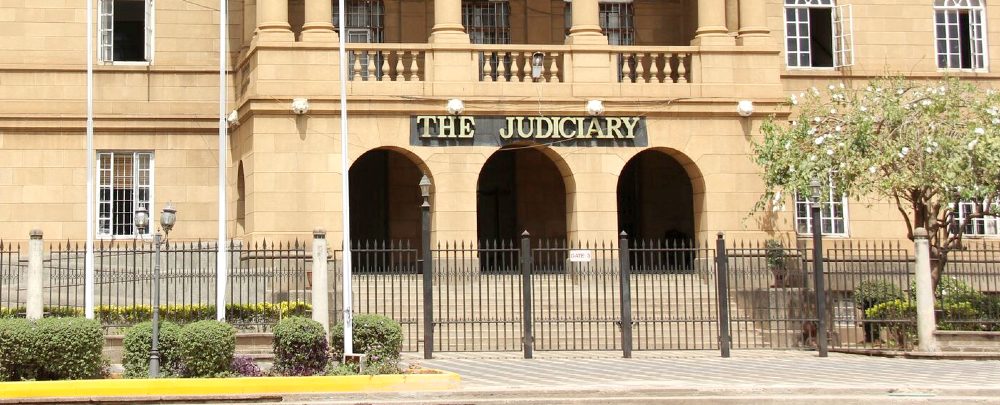
As violent extremist groups have gained a foothold in parts of the Sahel in recent years, one of their strategies has been to exploit communities’ grievances over access to justice. It’s a potent message. Human rights abuses by security sector actors and perceptions of unjust treatment by government officials are key determinants of individuals’ decisions to join violent extremist groups in the Sahel, the Lake Chad Basin, and the Horn of Africa.
Parts of Africa have also seen a rise in farmer-herder violence in recent years. Spurred by growing population and land pressures in the context of climate change, these disputes arise from competing claims over access to land.
In the coming decades, over 80 percent of Africa’s population growth is expected to take place in cities. This has contributed to the rapid expansion of informal settlements in many of Africa’s urban areas. The growing share of African urban dwellers living in these informal settlements underscores the urgency of protecting the civil liberties and property rights of these citizens. This includes guarding against heavy-handed—and at times exploitative—approaches taken by police to counter crime and violence. The #EndSARS protests in Nigeria were fundamentally about requiring police to abide by the rule of law.
“The increased activism by Africa’s growing youth movement is largely focused on matters of justice.”
The increased activism by Africa’s growing youth movement is largely focused on matters of justice, such as mediating conflicts in their communities, challenging presidents who defy term limits, and promoting civic engagement.
These examples highlight the indispensable, though often overlooked, role that justice institutions play in advancing African security. The failure to enforce the law not only contributes to insecurity but also opens the door to other forms of systemic criminality, often with the complicity of government actors.
Such examples abound, including recent high-profile cases of Chadian security officials and diplomats implicated in transnational drug trafficking, Central African Republic government leaders colluding with illicit trafficking networks, and Mozambican officials profiting from international criminal networks’ exploitation of the country’s vast natural resources.
The ENACT Organized Crime Index finds that high-level government actors, in collusion with criminal networks, are some of the most prominent facilitators of organized crime, which is easier to perpetrate when there are fewer guardrails against corruption in government. When the law is not applied evenly, and institutions of transparency and accountability are weak, government officials colluding with criminal networks have little to fear.
The African Union’s Agenda 2063 lists justice, rule of law, and human rights as necessary pre-conditions for a peaceful and conflict-free continent. Nonetheless, African security sectors are not always set up to integrate justice and rule of law into their approaches. Not only does this limit the ability of security officials to mitigate threats, but it also affects the justice sector’s ability to take remedial action in a way that is seen as equitable. This, in turn, has implications for the popular legitimacy of the government.
In theory, most conceptions of the security sector already include justice sector institutions. The bigger challenges lie in practice. Namely, how can security actors use justice and rule of law to understand security problems in the first place? Likewise, how can they pursue solutions that encompass the many ways the rule of law shapes resilience?
Regional and National-Level Approaches
To address transnational threats, some countries have established coordination bodies to harmonize strategy among security and justice officials. Sometimes, these institutions are special units that combine military officers, police, and gendarmes in their deployments to counter terrorism or transnational organized crime. Others convene judicial and investigative officials working on the same issues. In still other cases, there may be interagency committees focused on particular incidents or trends.
“Some countries have established coordination bodies to harmonize strategy among security and justice officials.”
One example of the latter comes from Niger, where the Ministry of Justice established a coordination committee on terrorism and transnational organized crime in 2018. The committee convenes investigators and judges working in special units, along with leaders in the armed forces, national guard, gendarmerie, and intelligence. At the time the committee was created, the military frequently engaged in counter violent extremism actions in Diffa and Liptako-Gourma without accompaniment by the gendarmerie prévôtale or military judicial police. The coordination committee sought to remedy this and reinforce procedures for security officials to adhere to human rights principles during arrest, detention, investigation, and transfer of terrorism suspects. These issues were a priority because they affected the abilities of prosecutors to bring viable cases against suspects. Better coordination alone cannot address rule of law concerns about the government’s response to violent extremism, but the genesis of the committee was a promising step in the direction of aligning security practices with fair trial standards. This, in turn, can help defuse the narrative of violent extremist organizations (VEOs) that governments fail to uphold the rule of law.
Justice sector institutions are also key in cross-border responses to security problems. Southern African countries hold Joint Permanent Commissions for security sector leaders to strategize about transnational concerns like terrorism, human trafficking, and flora and fauna crimes. All of these issues have significant rule-of-law dimensions. Addressing these challenges through domestic criminal justice systems may require mutual legal assistance and bilateral cooperation on extradition or law enforcement. They also affect individual human rights and the economic and social rights of vulnerable communities. Recognizing these linkages, the Southern African Development Community has included justice, law enforcement, intelligence, and environmental officials in certain defense and security chiefs’ meetings.
